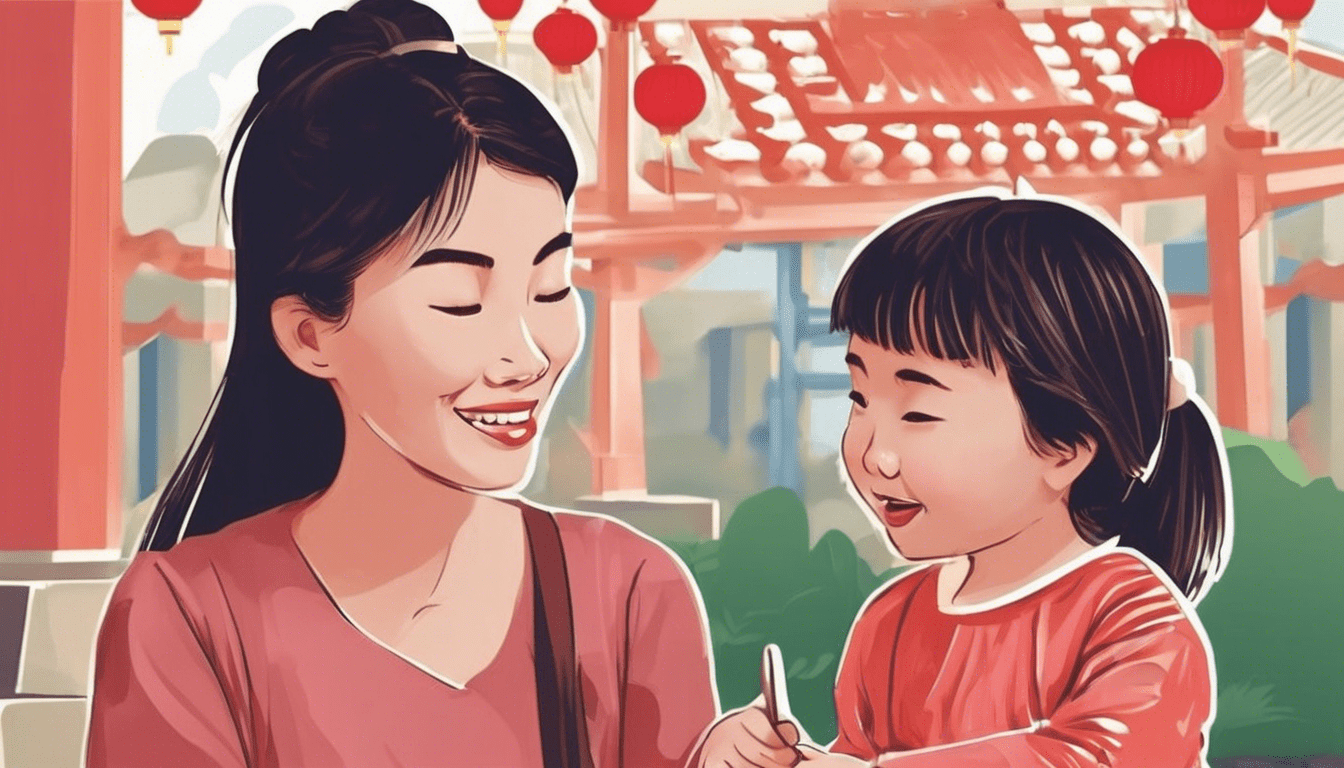Becoming an au pair in China offers a unique chance to experience diverse family environments—from bustling cities like Beijing to culturally rich regions such as Hangzhou. With roles ranging from pure childcare to tutoring, it’s essential to understand visa requirements, responsibilities, and living conditions before committing. Discover how carefully matched placements make cultural exchange rewarding and ensure your time in China is both safe and enriching.
Essential Guide to Becoming or Hiring an Au Pair in China
Aspiring candidates eager to be an au pair in china will discover a diverse array of placements across major cities like Beijing, Shanghai, Guangzhou, and additional urban centers such as Hangzhou, Wuhan, and Tianjin. The au pair experience in China is shaped by formal programs that emphasize cultural exchange, secure accommodation, and structured family arrangements.
Also to read : How do UK businesses adapt to changing consumer behavior post-pandemic?
Host families typically seek applicants aged 18-30, expecting a genuine interest in language and cultural immersion. Contract durations range from a single month up to two years, accommodating varying travel plans and long-term ambitions. Both parties must comply with legal guidelines: au pairs are required to obtain the relevant visa (F-visa for stays up to six months or X-visa for longer placements), facilitated by a signed contract and invitation from the family.
Daily routines usually center around childcare, language exchange, and light educational support. Unlike full-time nannies, au pairs may supplement their roles with language tutoring, but heavy household chores or pet care are uncommon. The arrangement fosters mutual understanding, enabling families to share cultural traditions while au pairs gain invaluable Mandarin practice and insight into local life. Safety, location convenience, and strong family values are frequently prioritized by both host families and applicants.
Also to discover : How can UK businesses reduce operational costs without sacrificing quality?
Application, Visa, and Placement Process
Timeline and Step-by-Step for Applying as an Au Pair or Hosting Family
Start by identifying au pair opportunities—placements are available in cities like Hangzhou, Beijing, Wuhan, and more, with durations from 1 to 24 months. The first step involves searching through reputable platforms or agencies such as https://masons-aupair.com/. Be prepared, as finding the right match can take a few weeks to three months. Once paired, discuss start dates and responsibilities with your host family.
Required Documentation: Contracts, Invitation Letters, Supporting Papers
You will need a signed contract, an invitation letter from the host family, and sometimes proof of student enrollment (for X visa). Prepare scanned copies of your passport, recent photos, and any additional documents requested by agencies or local authorities. Host families must provide proper paperwork to support your visa application.
Navigating Visa Procedures (F and X Visas), Agency Selection, and Application Tips
The F visa suits stays up to six months, while the X visa is generally needed for placements beyond that. Agencies like Masons Au Pair guide applicants through paperwork, interviews, and orientation. Interview preparation is key: highlight your childcare experience and communicate your eagerness for cultural exchange. Respond honestly and confidently to questions about your expectations, flexibility, and motivation.
Responsibilities, Daily Life, and Cultural Integration
Core daily tasks, working hours, schedule structures, and overview of duties across different families
Au pairs in China typically focus on childcare responsibilities, supporting children from toddlers to school-age. Most roles span between 1 to 24 months, with common stay lengths from three to twelve months. Weekly work hours average around 30, with daily duties such as preparing meals for children, leading educational activities, and school drop-offs. Some families request additional tutoring or light household chores but emphasize a balance that prevents overload.
Schedules adjust to each family’s needs: for instance, a family in Beijing may require morning and after-school care for two boys, while families in cities like Wuhan expect only child companionship, strictly excluding housework or pet care. Stipends range from $100 to $300 per month, covering personal expenses, while major costs—like accommodation and meals—are covered by the host family.
Insights on living arrangements, social support, and strategies for effective communication with host families
Accommodation arrangements nearly always include a private room and shared family spaces. Urban placements offer proximity to public transit and shopping centers, making daily life more convenient. Open communication—using simple, respectful language—contributes to smoother day-to-day interactions. Many hosts value cultural exchange, often facilitating introductions to extended family members and local customs.
Strategies for language acquisition, cultural immersion, and adjusting to household etiquette and customs
Language learning advantages are significant. Many programs feature Mandarin classes, and families frequently help au pairs practice real-life conversations at home. Adjusting to Chinese family dynamics—like meal traditions or daily routines—may require patience, but engagement in holiday celebrations and social activities helps au pairs immerse and build confidence. Respecting household rules, including etiquette around shared spaces, fosters trust and eases integration.
Compensation, Costs, Safety, and Success Stories
Stipends, Covered Expenses, Out-of-Pocket Costs, and Practical Budgeting for Leisure and Travel
Precision: Au pairs in China are provided with accommodation, meals, and a monthly stipend—typically between 700 and 2,000 yuan ($100–$300)—in exchange for around 30 hours of childcare or tutoring per week. Host families cover basic daily living expenses, so most personal budgeting revolves around leisure, travel, and occasional dining out. To stretch your stipend, opt for local restaurants where meals can cost as little as $3. Public transportation is notably affordable, with subway rides starting at $0.30, making commuting accessible even on a small budget. Flight costs are substantial, with a one-way ticket from the US ranging from $400 to over $1,000; some agencies or families may assist with these expenses.
Health, Safety, Insurance, and Legal Considerations
Every participant should secure comprehensive health insurance—some programs support this process, while others expect the au pair to independently arrange coverage. Safety is emphasized: most families live in secure communities and provide emergency contacts. For legal compliance, au pairs require either an F or X visa, based on the length of stay and responsibilities, which depend on a formal invitation and contract. These documents are essential for a smooth entry and lawful employment.
First-Hand Experiences, Feedback from Former Au Pairs, and Proven Tips for a Rewarding Stay in China
Former au pairs frequently highlight the warmth and enthusiasm of host families, especially regarding cultural exchange and language learning. They recommend clear upfront communication to clarify job expectations—some roles lean solely on childcare, while others blend tutoring with light household help. To maximize your experience, immerse yourself in daily routines, take advantage of Mandarin classes, and keep an open mind to new customs and family dynamics.
Au Pair Duties, Lifestyle, and Cultural Exchange in China
Au Pair positions in China balance childcare, language, and cultural exchange. Using the SQuAD method: Typical daily duties involve accompanying children, sharing languages, and sometimes tutoring—rarely requiring significant housework. This creates a focused and supportive environment for cultural immersion.
Schedules generally cover about 30 hours per week. Tasks may include preparing simple meals, helping children with English, and escorting them to school or activities. Some families, such as in Wuhan, stress that household chores and pet care are not part of the role, making the workload lighter than traditional nanny jobs. Others combine caregiving with teaching or mentoring, especially when families seek live-in tutors.
Lifestyle perks include meals, accommodation, and a stipend ranging from 700 to 2,000 yuan (roughly $100–$300) monthly. While this doesn’t enable independent living, it covers basics and allows for small personal expenses. Most placements emphasize family integration; au pairs often participate in family outings, festivals, and daily routines, fostering natural cultural exchange.
Cultural immersion is a core benefit, with many families and agencies encouraging au pairs to attend Mandarin classes and share their own traditions. This mutual exchange broadens horizons for both sides, turning childcare into a rewarding experience for personal and professional growth.




